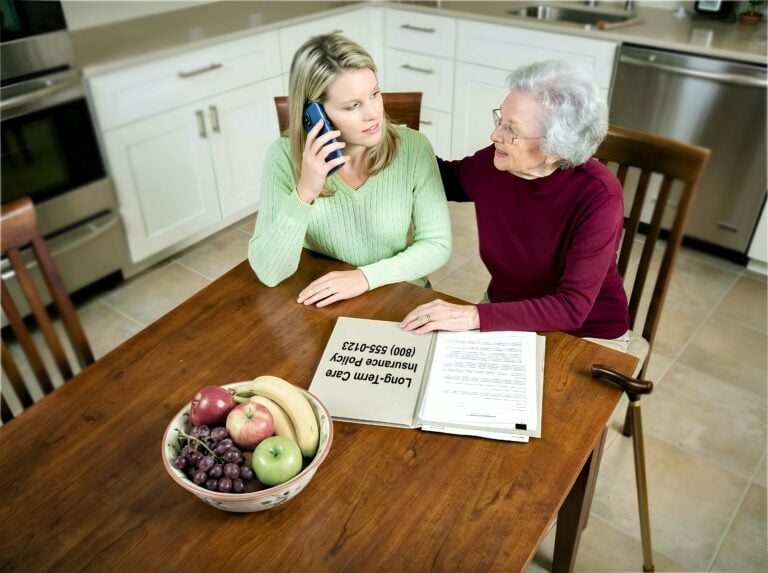The chest tightness that won’t quite go away.
The shortness of breath when climbing a single flight of stairs.
The fatigue that makes even simple tasks feel overwhelming.
Heart disease doesn’t announce itself with fireworks. It creeps in gradually, stealing energy and independence piece by piece — until one day, you realize that life has become significantly harder than it used to be.
Heart disease remains America’s #1 killer:
- 941,652 Americans died from cardiovascular disease in 2022
- One person dies every 34 seconds from cardiovascular disease
- 1 in 5 deaths in the United States is caused by heart disease
- Heart disease kills more people than all cancers and accidents combined
- $417.9 billion in annual healthcare costs and lost productivity
But here’s what the statistics don’t tell you: With proper management, lifestyle changes, and the right support, millions of Americans live well with heart disease for decades. Modern treatments have dramatically improved outcomes, and much of the day-to-day management happens at home — where the proper support can make all the difference.
This comprehensive guide explains how to manage heart disease at home, what to expect, and how professional caregiving can help you or your loved one live the fullest life possible.
Understanding Heart Disease
What Is Heart Disease?
“Heart disease” is an umbrella term for multiple conditions affecting the heart and blood vessels.
While people often use “heart disease” and “coronary artery disease” interchangeably, heart disease actually encompasses many different conditions — some present from birth, others develop over a lifetime.
The common thread: something prevents the heart from functioning as it should, whether that’s blocked arteries, damaged valves, irregular rhythms, weakened muscle, or structural abnormalities.
Types of Heart Disease
Coronary Artery Disease (CAD) — The Most Common Type
- Affects approximately 20 million Americans
- Caused by plaque buildup (atherosclerosis) in the arteries supplying the heart
- Reduces blood flow to the heart muscle
- Can lead to angina (chest pain), heart attacks, and heart failure
- Killed 371,506 Americans in 2022 — the leading cause of heart disease deaths
- About 1 in 20 adults (5%) aged 20 and older have CAD
Heart Failure
- The heart can’t pump blood efficiently enough to meet the body’s needs
- 6.7 million Americans currently live with heart failure
- 1 in 4 people (24% lifetime risk) will develop heart failure
- Often develops as a consequence of other heart conditions
- Projected to affect 11.4 million Americans by 2050
Heart Arrhythmias
- Abnormal heart rhythms — too fast, too slow, or irregular
- Includes atrial fibrillation (AFib), the most common severe arrhythmia
- AFib affects 6+ million Americans and increases stroke risk 5-fold
- Can range from harmless to life-threatening
Heart Valve Disease
- One or more heart valves don’t open or close properly
- Can be present from birth or develop over time
- May cause the heart to work harder, eventually weakening it
- Affects approximately 2.5% of the U.S. population
Cardiomyopathy
- Disease of the heart muscle itself
- The heart becomes enlarged, thickened, or stiff
- Can be inherited or caused by other conditions
- Reduces the heart’s ability to pump blood effectively
Congenital Heart Disease
- Heart defects present at birth
- Affects about 1% of babies born each year
- Advances in treatment mean most children now survive to adulthood
- Adults with congenital heart disease require lifelong monitoring
Peripheral Artery Disease (PAD)
- Narrowed arteries reduce blood flow to the limbs
- Often affects the legs, causing pain with walking
- Shares risk factors with coronary artery disease
- Affects approximately 8-12 million Americans
Pericardial Disease
- Inflammation or other problems with the sac surrounding the heart
- It can cause chest pain and restrict heart function
Symptoms of Heart Disease
Heart disease symptoms vary depending on the specific condition, but common warning signs include:
Chest-Related Symptoms:
- Chest pain, pressure, tightness, or discomfort (angina)
- Pain that spreads to the neck, jaw, throat, shoulder, arm, or back
- Chest discomfort during physical activity or emotional stress
Breathing and Energy:
- Shortness of breath during activity or at rest
- Difficulty breathing when lying flat
- Unusual fatigue and weakness
- Decreased ability to exercise
Heart Rhythm:
- Heart palpitations (racing, fluttering, or pounding)
- Irregular heartbeat
- Slow heartbeat
- Dizziness or lightheadedness
- Fainting or near-fainting
Circulation Problems:
- Swelling in legs, ankles, feet, or abdomen
- Pain, numbness, weakness, or coldness in legs or arms
- Leg pain when walking that improves with rest (claudication)
Other Warning Signs:
- Unexplained weight gain (from fluid retention)
- Persistent cough or wheezing
- Loss of appetite or nausea
- Confusion or difficulty concentrating
▶ IMPORTANT: Heart disease symptoms often develop gradually. Many people dismiss early warning signs or attribute them to aging, stress, or being out of shape. Any persistent symptoms warrant medical evaluation.
Heart Attack Warning Signs
Call 911 immediately if you experience:
▶ Chest discomfort lasting more than a few minutes (pressure, squeezing, fullness, or pain)
▶ Pain or discomfort in arms, back, neck, jaw, or stomach
▶ Shortness of breath with or without chest discomfort
▶ Cold sweat, nausea, or lightheadedness
Women may experience different symptoms: More likely to have shortness of breath, nausea/vomiting, and back or jaw pain — sometimes without chest pain.
Time is muscle: The faster treatment begins, the more heart muscle can be saved.
Heart Disease Statistics: 2024-2025 Update
Heart disease remains the leading cause of death in America — and the trends are concerning.
Deaths and Prevalence
| Statistic | Data |
|---|---|
| CVD Deaths (2022) | 941,652 |
| Deaths per day | ~2,580 (1 every 34 seconds) |
| Percent of all deaths | 1 in 5 (20%) |
| Coronary artery disease deaths (2022) | 371,506 |
| Americans with heart failure | 6.7 million |
| Americans with coronary artery disease | ~20 million |
Lifetime Risk
- Heart failure: 24% (1 in 4 people)
- Coronary artery disease: Approximately 40% for men, 30% for women
- Cardiovascular disease overall: Nearly 50% of adults have some form
Economic Impact
- Annual cost: $417.9 billion (healthcare + lost productivity)
- Heart failure alone: $31-39 billion annually
- Projected 2050 CVD costs: Could reach $858 billion
Concerning Trends (2024-2025)
Rising risk factors:
- Hypertension and obesity are projected to affect 180+ million Americans by 2050
- Diabetes projected to affect 80+ million Americans by 2050
- People with clusters of multiple risk factors have more than doubled since 1999-2002
- Cardiovascular-kidney-metabolic syndrome — the combination of heart disease, kidney disease, diabetes, and obesity — dramatically increases risk
Disparities:
- Black, American Indian, and Alaska Native individuals have the highest heart disease mortality rates
- Heart disease mortality rates for Black individuals have risen faster than for any other group
- Geographic clustering of deaths in Southern and Midwest states (Mississippi, Louisiana, Arkansas, Oklahoma, Texas, Kentucky, Tennessee, Indiana, Illinois, Wisconsin)
Age trends:
- Average age of first heart attack: 65.6 years for men, 72.0 years for women
- Heart disease is increasingly affecting younger populations
- COVID-19 infection linked to increased cardiovascular risk for up to 3 years after illness
Risk Factors for Heart Disease
Risk Factors You Cannot Change
Age
→ Risk increases as you get older
Sex
→ Men have a higher risk at younger ages; women’s risk increases after menopause
Family history
→ Having a parent or sibling with early heart disease increases your risk
Race/ethnicity
→ Certain groups have higher rates of heart disease and its risk factors
Previous heart attack or stroke
→ Significantly increases risk of future events
Risk Factors You CAN Change
These modifiable risk factors are the targets of prevention and treatment:
High Blood Pressure (Hypertension)
- The “silent killer” usually has no symptoms
- Forces the heart to work harder
- Damages blood vessel walls over time
- Optimal: Less than 120/80 mmHg
High Cholesterol
- LDL (“bad”) cholesterol builds up in artery walls
- Low HDL (“good”) cholesterol reduces protection
- High triglycerides contribute to plaque formation
- Often has no symptoms until damage is done
Diabetes
- High blood sugar damages blood vessels and nerves
- Dramatically increases heart disease risk
- Often occurs alongside obesity and high blood pressure
Obesity and Overweight
- Increases strain on the heart
- Associated with high blood pressure, diabetes, and cholesterol problems
- Particularly harmful when fat is concentrated around the abdomen
Physical Inactivity
- Contributes to obesity, high blood pressure, and diabetes
- Regular activity strengthens the heart and improves circulation
Unhealthy Diet
- High in saturated fat, trans fat, sodium, and added sugars
- Low in fruits, vegetables, whole grains, and fiber
- Contributes to obesity, high cholesterol, and high blood pressure
Smoking and Tobacco Use
- Damages blood vessel walls
- Promotes plaque buildup
- Raises blood pressure and heart rate
- Reduces oxygen in the blood
- Leading cause of preventable death
Excessive Alcohol
- Raises blood pressure
- Contributes to weight gain
- Can weaken the heart muscle (cardiomyopathy)
Chronic Stress
- Raises blood pressure
- May contribute to unhealthy coping behaviors
- Associated with inflammation
Poor Sleep
- Sleep apnea significantly increases cardiovascular risk
- Chronic sleep deprivation affects blood pressure and metabolism
Life’s Essential 8: The American Heart Association’s Framework for Heart Health
In 2022, the American Heart Association updated its framework for optimal cardiovascular health from “Life’s Simple 7” to “Life’s Essential 8” — adding sleep health as a crucial component.
These eight factors, when optimized, dramatically reduce heart disease risk:
Four Health Behaviors
1. Eat Better
- Emphasize fruits, vegetables, whole grains, lean proteins, nuts, and seeds
- Choose non-tropical plant oils (olive, canola)
- Limit processed foods, added sugars, sodium, and saturated fats
- Follow Mediterranean, DASH, or plant-based dietary patterns
2. Be More Active
- Adults: At least 150 minutes of moderate activity OR 75 minutes of vigorous activity per week
- Children: 60 minutes of activity daily
- Include muscle-strengthening activities
- Reduce sedentary time
3. Quit Tobacco
- Avoid all forms: cigarettes, e-cigarettes, cigars, pipes, hookah, and chewing tobacco
- Exposure to secondhand smoke is also harmful
- Quitting at any age provides benefits
4. Get Healthy Sleep (NEW)
- Adults: 7-9 hours per night
- Children: Age-appropriate amounts (more for younger children)
- Quality matters as much as quantity
- Screen for and treat sleep apnea
Four Health Factors
5. Manage Weight
- Optimal BMI: Less than 25
- Maintain a healthy weight through diet and activity
- Focus on overall body composition, not just scale weight
6. Control Cholesterol
- Know your numbers (especially non-HDL cholesterol)
- Optimal levels vary based on individual risk
- Diet, exercise, and medications as needed
7. Manage Blood Sugar
- Fasting glucose under 100 mg/dL is optimal
- Hemoglobin A1c under 5.7% indicates standard blood sugar control
- Prediabetes and diabetes require active management
8. Manage Blood Pressure
- Optimal: Less than 120/80 mmHg
- Monitor regularly at home and at doctor visits
- Lifestyle changes and medications as needed
Why Life’s Essential 8 Matters
Research shows that achieving higher scores on Life’s Essential 8:
- Reduces cardiovascular disease risk by up to 80%
- Reduces all-cause mortality significantly
- Reduces risk of cancer, dementia, and other conditions
- Benefits extend to all ages and populations
The sobering reality: Less than 1% of U.S. adults meet “ideal” criteria for all health behaviors.
Medical Treatment for Heart Disease
Medications
Heart disease treatment typically involves multiple medications working together:
Cholesterol-Lowering Medications:
- Statins — First-line treatment; high-intensity therapy recommended for most heart disease patients
- Ezetimibe — Added when statins alone aren’t enough
- PCSK9 inhibitors — For very high-risk patients who need additional LDL lowering
Blood Pressure Medications:
- ACE inhibitors and ARBs — Relax blood vessels; protect the heart and kidneys
- Beta-blockers — Slow heart rate; reduce the heart’s workload
- Calcium channel blockers — Relax blood vessels
- Diuretics — Reduce fluid and blood pressure
Blood Thinners:
- Aspirin — Low-dose daily for many heart disease patients
- P2Y12 inhibitors (clopidogrel, ticagrelor) — Often used with aspirin after stents or heart attacks
- Anticoagulants (warfarin, DOACs) — For atrial fibrillation and blood clot prevention
Heart Failure Medications:
- SGLT2 inhibitors — NEW breakthrough; reduce hospitalizations 25-30%; now recommended across all types of heart failure
- ARNIs (sacubitril/valsartan) — Superior to older medications for heart failure
- Beta-blockers — Improve heart function over time
- Mineralocorticoid receptor antagonists — Reduce fluid retention and improve survival
Other Medications:
- Nitrates — Relieve angina by opening blood vessels
- Ranolazine — For chronic angina
- Colchicine — NEW: Reduces cardiac events in patients with prior heart attacks
- GLP-1 receptor agonists — For patients with diabetes, reduce cardiovascular events
Procedures and Surgeries
Percutaneous Coronary Intervention (PCI/Angioplasty with Stenting)
- Catheter-based procedure to open blocked arteries
- Stents (small metal mesh tubes) keep arteries open
- Often performed during or after heart attacks
Coronary Artery Bypass Grafting (CABG)
- Open-heart surgery to bypass blocked arteries
- Uses blood vessels from other parts of the body
- Typically, for severe or complex blockages
Heart Valve Surgery
- Repair or replace damaged heart valves
- Can be done through open surgery or minimally invasive approaches
- Transcatheter valve replacement (TAVR) is an option for some patients
Implantable Devices:
- Pacemakers — Regulate slow or irregular heart rhythms
- Implantable cardioverter-defibrillators (ICDs) — Prevent sudden cardiac death
- Cardiac resynchronization therapy (CRT) — Coordinates the heart chambers in heart failure
Advanced Therapies:
- Left ventricular assist devices (LVADs) — Mechanical pumps for advanced heart failure
- Heart transplant — For end-stage heart failure when other treatments fail
Cardiac Rehabilitation
Cardiac rehabilitation is one of the most underutilized but effective treatments for heart disease.
Programs typically include:
- Supervised exercise training
- Education on heart-healthy living
- Nutritional counseling
- Risk factor management
- Stress management and psychosocial support
Benefits:
- 21-34% lower mortality in patients who participate
- Improved functional capacity
- Better quality of life
- Reduced hospitalizations
- Effective whether delivered in-person or at home
Coverage: Medicare covers cardiac rehabilitation for qualifying conditions.
Managing Heart Disease at Home
Medical treatment provides the foundation, but day-to-day management occurs at home.
Medication Management
Taking medications correctly is essential — heart disease medications only work if taken as prescribed.
Challenges many patients face:
- Multiple medications with different schedules
- Side effects that may tempt skipping doses
- Forgetting doses, especially when feeling well
- Cost and access issues
- Confusion about the purpose of each medication
Strategies for success:
✓ Use a pill organizer — Weekly organizers with compartments for each day and time
✓ Set reminders — Phone alarms, apps, or caregiver prompts
✓ Take medications at the same time daily — Link to existing routines (meals, bedtime)
✓ Keep a medication list — Include names, doses, timing, and purpose
✓ Understand your medications — Know why you take each one and potential side effects
✓ Never stop medications without talking to your doctor — Even if you feel fine
✓ Report side effects — There are often alternatives if one medication causes problems
✓ Coordinate refills — Don’t run out; consider automatic refills or 90-day supplies
Heart-Healthy Eating
Diet is one of the most powerful tools for managing heart disease.
Dietary patterns that protect the heart:
Mediterranean Diet:
- Abundant fruits, vegetables, whole grains, legumes
- Olive oil is the primary fat source
- Fish at least twice weekly
- Limited red meat
- Moderate wine (optional)
- Associated with 23% reduction in all-cause mortality and 27% reduction in cardiovascular mortality in older adults
DASH Diet (Dietary Approaches to Stop Hypertension):
- Emphasizes fruits, vegetables, and whole grains
- Includes low-fat dairy, lean proteins
- Limits sodium, sweets, and red meat
- Proven to lower blood pressure
Plant-Based Patterns:
- Focus on vegetables, fruits, whole grains, legumes, and nuts
- Limit or eliminate animal products
- Associated with reduced cardiovascular risk
Key Principles for Heart-Healthy Eating:
✓ Limit sodium — Less than 2,000 mg per day (about one teaspoon of salt)
- Choose fresh or frozen foods over canned ones
- Cook at home more often
- Read labels carefully
- Use herbs and spices instead of salt
✓ Choose healthy fats
- Emphasize olive oil, nuts, avocados, fatty fish
- Limit saturated fat (red meat, full-fat dairy, butter)
- Avoid trans fats (partially hydrogenated oils)
✓ Eat more fiber
- Fruits, vegetables, whole grains, legumes
- Fiber helps lower cholesterol and blood sugar
✓ Limit added sugars
- Sugary drinks, desserts, and candy
- Check labels for hidden sugars
✓ Control portions
- Especially important for weight management
- Use smaller plates; measure portions
✓ Eat plenty of fruits and vegetables
- Aim for 4-5 servings of each daily
- Variety of colors for different nutrients
Physical Activity
Exercise is medicine for heart disease — proven to improve symptoms, function, and survival.
Benefits of regular activity:
- Strengthens the heart muscle
- Improves circulation
- Lowers blood pressure
- Improves cholesterol levels
- Helps control weight
- Reduces stress and improves mood
- Improves blood sugar control
Recommendations:
- 150 minutes per week of moderate activity (brisk walking, swimming, cycling)
- OR 75 minutes per week of vigorous activity
- Muscle-strengthening activities 2+ days per week
- Reduce sitting time throughout the day
Starting safely with heart disease:
✓ Get clearance from your doctor — Ask about appropriate activity levels
✓ Start slowly — Even 5-10 minutes is beneficial if you’re currently inactive
✓ Increase gradually — Add time and intensity over weeks and months
✓ Listen to your body — Stop if you experience warning symptoms
✓ Consider cardiac rehabilitation — Supervised exercise with professionals
✓ Find activities you enjoy — You’re more likely to stick with them
Warning signs to stop exercising:
- Chest pain or pressure
- Excessive shortness of breath
- Dizziness or lightheadedness
- Unusual fatigue
- Irregular heartbeat
- Nausea
Weight Management
Maintaining a healthy weight reduces strain on the heart and improves all cardiovascular risk factors.
Strategies:
- Combine healthy eating with regular physical activity
- Set realistic goals (1-2 pounds per week is sustainable)
- Focus on lifestyle changes, not quick fixes
- Consider working with a registered dietitian
- Discuss newer weight-loss medications with your doctor if appropriate
Stress Management
Chronic stress contributes to heart disease through multiple pathways.
Stress management techniques:
- Regular physical activity
- Relaxation techniques (deep breathing, meditation, yoga)
- Adequate sleep
- Social connections
- Time in nature
- Limiting news and social media consumption
- Professional counseling when needed
Sleep
Sleep is now recognized as a key component of cardiovascular health.
Recommendations:
- 7-9 hours per night for adults
- Consistent sleep schedule
- Dark, quiet, cool bedroom
- Limit screens before bed
- Avoid caffeine and alcohol close to bedtime
Sleep apnea and heart disease:
- Very common in heart disease patients
- Significantly worsens cardiovascular outcomes
- Often undiagnosed
- Treatable with CPAP or other therapies
- Ask your doctor if you snore, feel tired despite sleeping, or wake gasping
Smoking Cessation
Quitting smoking is the single most important thing a smoker can do for heart health.
Benefits begin immediately:
- Heart rate and blood pressure drop within 20 minutes
- Carbon monoxide levels normalize within 12 hours
- Circulation improves within weeks
- Heart attack risk drops significantly within 1 year
- Risk continues to decline over time
Resources:
- 1-800-QUIT-NOW (free counseling and support)
- Nicotine replacement therapy (patches, gum, lozenges)
- Prescription medications (varenicline, bupropion)
- Support groups and counseling
- Mobile apps
Monitoring and Follow-Up
Regular monitoring helps catch problems early.
✓ Keep all medical appointments — Don’t skip follow-ups, even if you feel fine
✓ Monitor blood pressure at home — Record readings to share with your doctor
✓ Weigh yourself regularly — Sudden weight gain may indicate fluid retention
✓ Know your numbers — Blood pressure, cholesterol, blood sugar
✓ Track symptoms — Note any changes to discuss with your doctor
✓ Get recommended tests — Blood work, ECGs, stress tests, imaging as directed
✓ Stay current on vaccinations — Flu, pneumonia, COVID-19 (heart disease increases infection risk)
How Home Care Helps Manage Heart Disease
Living with heart disease presents daily challenges that can make independence difficult.
Fatigue makes everything harder—shortness of breath limits activity. Managing multiple medications is confusing. Preparing heart-healthy meals takes energy you don’t have. And attending frequent medical appointments requires transportation.
Professional home care provides the support that enables successful heart disease management.
Medication Management Support
✓ Medication reminders — Ensuring all doses are taken correctly and on time
✓ Pill box organization — Setting up weekly medication organizers
✓ Pharmacy coordination — Picking up prescriptions and managing refills
✓ Side effect monitoring — Noticing changes that should be reported to the doctor
✓ Medication list maintenance — Keeping an updated list for medical appointments
Heart-Healthy Meal Preparation
✓ Low-sodium cooking — Preparing delicious meals without excess salt
✓ Meal planning — Creating weekly menus following dietary guidelines
✓ Grocery shopping — Selecting appropriate foods and reading labels
✓ Portion control — Preparing appropriate serving sizes
✓ Special diet accommodation — Diabetic, low-cholesterol, or other restrictions
✓ Hydration support — Ensuring adequate fluid intake
Daily Monitoring
✓ Weight tracking — Daily weigh-ins to catch fluid retention early
✓ Blood pressure monitoring — Regular checks and recording readings
✓ Symptom observation — Noting changes in energy, breathing, or swelling
✓ Activity monitoring — Tracking how much activity is tolerated
✓ Early warning recognition — Knowing when to call the doctor
Physical Activity Support
✓ Walking companionship — Safe exercise with someone present
✓ Exercise encouragement — Motivation to stay active
✓ Activity pacing — Helping balance rest and activity
✓ Post-rehabilitation support — Continuing exercises from cardiac rehab
✓ Safety during activity — Monitoring for warning signs
Personal Care Assistance
Heart disease symptoms make basic self-care exhausting. Caregivers help with:
✓ Bathing and showering — Safely, with rest breaks as needed
✓ Dressing — Including support stockings for swelling
✓ Grooming — Personal hygiene tasks
✓ Mobility assistance — Safe transfers and walking support
✓ Energy conservation — Pacing activities throughout the day
Light Housekeeping
When you’re fatigued and short of breath, household tasks become impossible:
✓ Laundry — Including changing bed linens
✓ Light cleaning — Maintaining a safe, clean environment
✓ Kitchen cleanup — Dishwashing and sanitizing
✓ Organization — Keeping spaces clear to prevent falls
✓ Meal cleanup — So you can rest after eating
Transportation
✓ Doctor appointments — Cardiology, primary care, specialists
✓ Cardiac rehabilitation — Getting to and from exercise sessions
✓ Lab appointments — Blood work monitoring
✓ Pharmacy visits — When prescriptions need pickup
✓ Social outings — Maintaining connections and quality of life
Companionship and Emotional Support
Heart disease takes an emotional toll. Depression affects up to 40% of heart patients and worsens outcomes.
✓ Conversation and company — Reducing isolation
✓ Emotional support — Understanding and encouragement
✓ Social engagement — Activities that improve mood and outlook
✓ Cognitive stimulation — Games, reading, discussions
Respite for Family Caregivers
Family members providing heart disease care experience significant stress:
✓ Breaks for family caregivers — Time to rest and recharge
✓ Peace of mind — Knowing their loved one is safe
✓ Prevention of caregiver burnout, which affects everyone
Why Home Care Makes a Difference
Research shows:
- Proper self-care management reduces hospitalizations
- Medication adherence improves outcomes and survival
- Social support reduces depression and enhances recovery
- Adequate nutrition supports healing and energy
- Regular monitoring catches problems before they become crises
Home care provides the structure and support that makes excellent self-care possible — especially for those living alone, whose family members work, or who need more help than family can provide.
Living Well with Heart Disease
A heart disease diagnosis changes your life — but it doesn’t have to end it.
Millions of Americans live active, fulfilling lives for years and even decades after diagnosis. The keys are:
✓ Partner with your healthcare team — Take an active role in your care
✓ Take medications as prescribed — They work only if you take them
✓ Follow lifestyle recommendations — Diet, exercise, and healthy habits make a real difference
✓ Monitor your condition — Know your numbers and warning signs
✓ Get support when needed — You don’t have to do this alone
✓ Stay positive but realistic — Hope is powerful medicine
We Can Help
At All Heart Home Care, we understand the daily challenges of living with heart disease — and we’re here to help.
Our caregivers provide:
✓ Medication reminders and organization — Ensuring you take the proper medications at the correct times
✓ Heart-healthy, low-sodium meal preparation — Delicious food that follows your dietary guidelines
✓ Daily monitoring — Weight, blood pressure, and symptom tracking
✓ Personal care assistance — Bathing, dressing, grooming support
✓ Light housekeeping — Maintaining a clean, safe home
✓ Transportation — To medical appointments, cardiac rehab, pharmacy
✓ Exercise companionship — Safe walking and activity support
✓ Companionship — Emotional support and social engagement
✓ Respite care — Giving family caregivers essential breaks
Our rates begin at $37/hour, with transparent pricing and no hidden fees.
Call us at (619) 736-4677 for a free consultation.
Because living well with heart disease is possible — with the proper support by your side.
Resources
Heart Disease Information:
- American Heart Association: heart.org
- CDC Heart Disease Prevention: cdc.gov/heart-disease
- National Heart, Lung, and Blood Institute: nhlbi.nih.gov
Life’s Essential 8:
Smoking Cessation:
- 1-800-QUIT-NOW (free counseling)
- smokefree.gov
Cardiac Rehabilitation:
- Ask your doctor about Medicare-covered cardiac rehab programs
Emergency:
- Call 911 for heart attack warning signs






